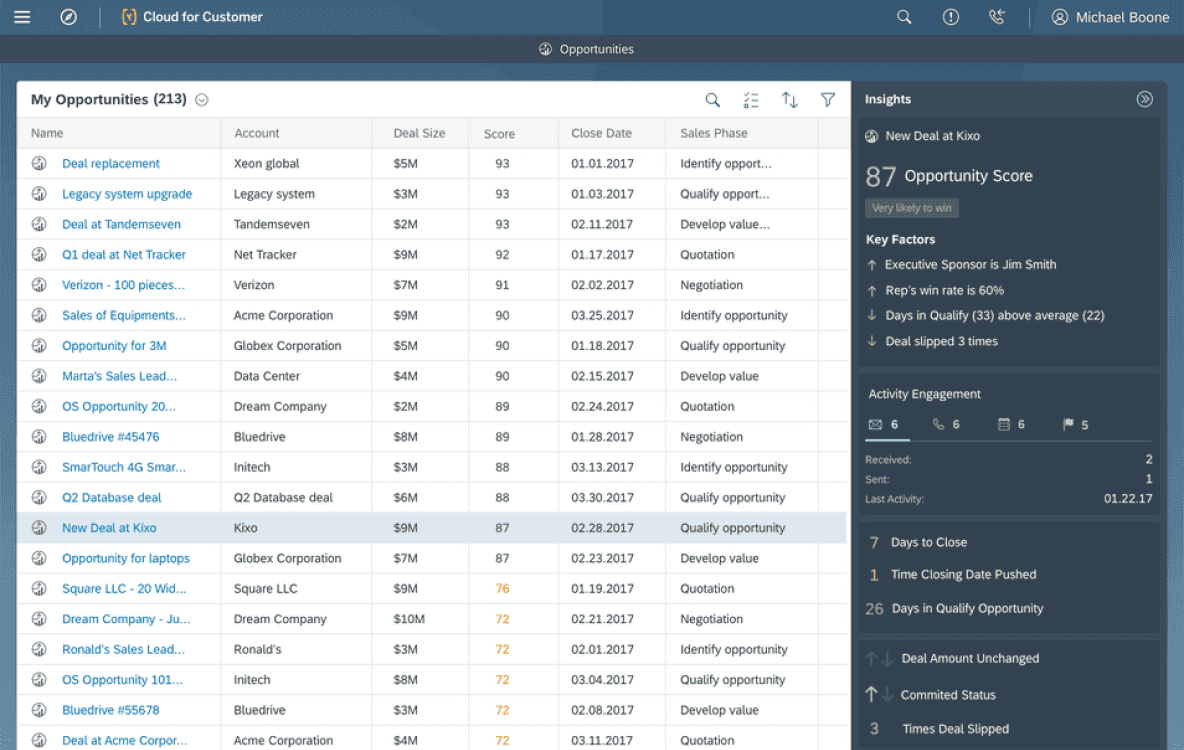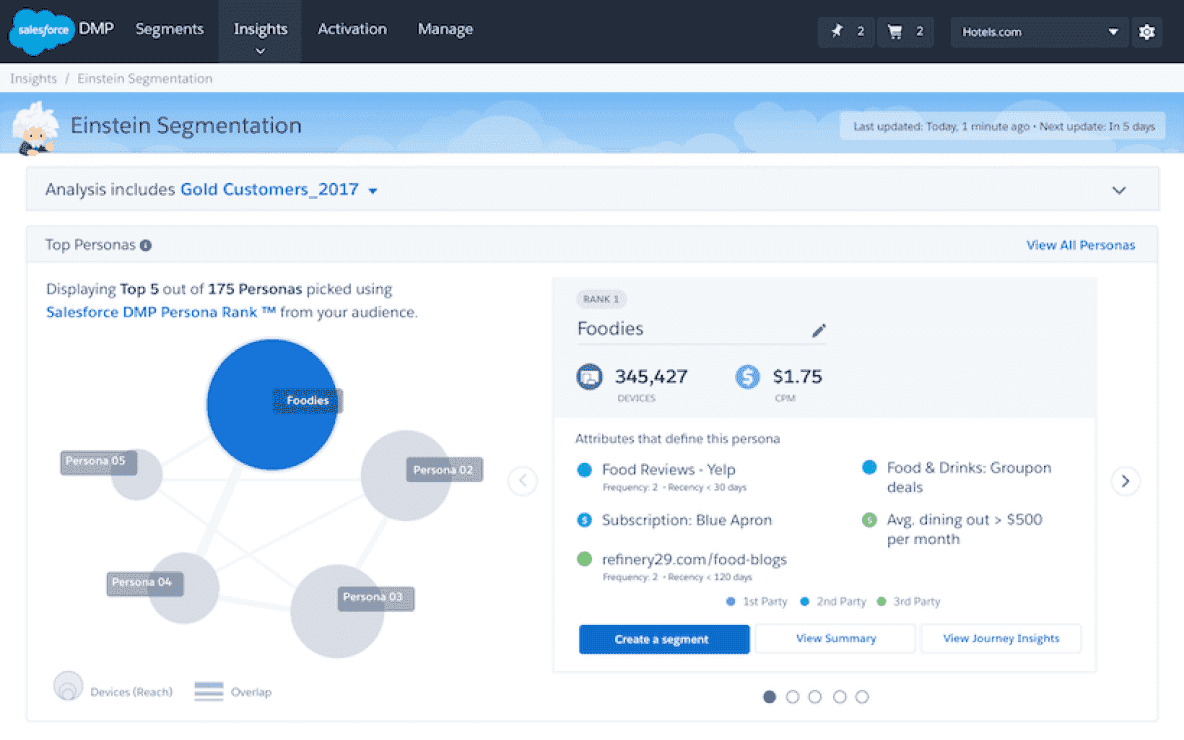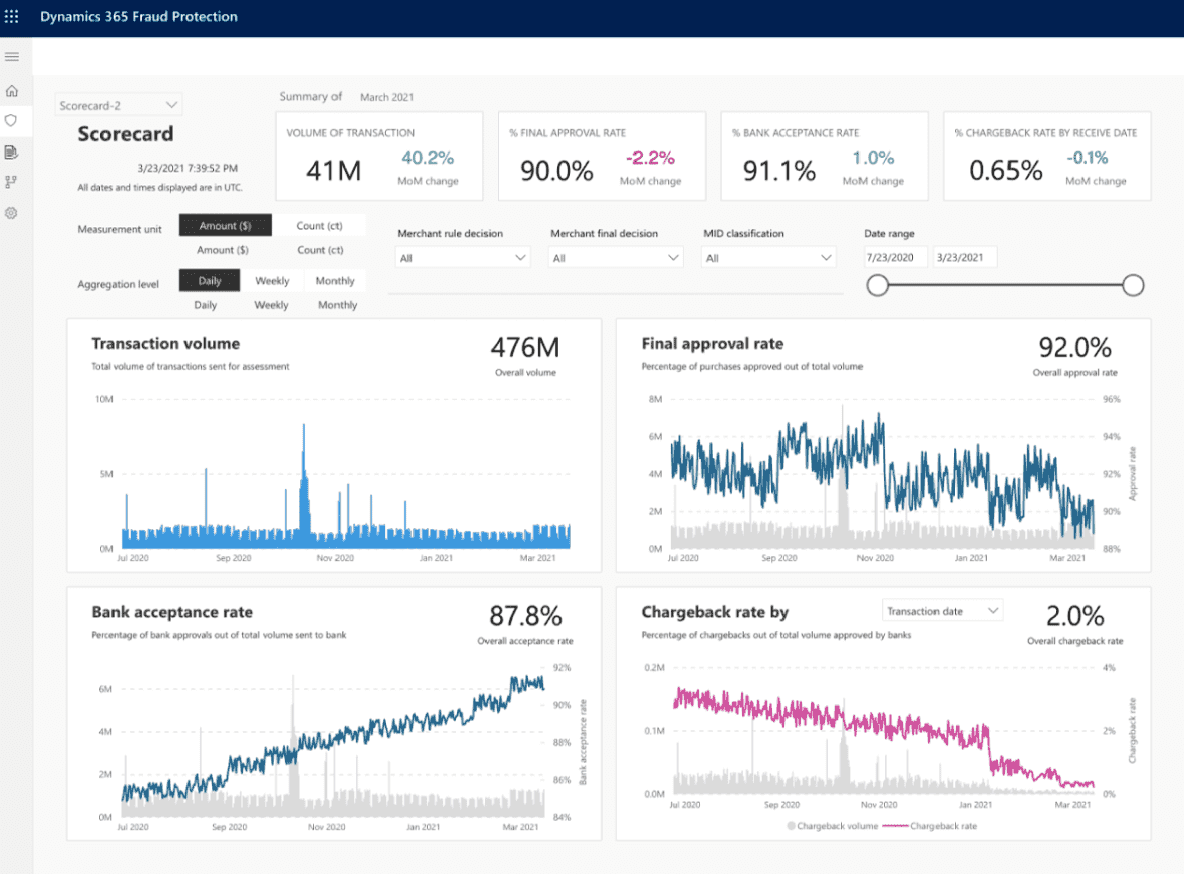


Artificial intelligence in customer relationship management (CRM) software helps businesses automate routine processes like inputting and cleaning customer data, reduce human errors, and improve decision-making via data analytics and forecasting capabilities.
Itransition offers comprehensive CRM consulting and development services to help you select, design, and adopt an AI-powered solution matching your corporate goals and requirements.
Table of contents
expected CRM market value by 2029, with AI as a major demand driver
Fortune Business Insights
of companies consider improving customer experience the top AI use case
faster response to customers and partners by companies adopting AI
AI-based technologies сan augment your CRM's functionality in various use cases and workflows.
Customer serviceImage title: SAP lead scoring feature interface
Data source: SAP

Image title: Salesforce customer segmentation feature interface
Data source: Salesforce

Legacy and on- premises
Oracle digital assistant
Oracle digital assistant
NLP deep learning engine
Conversational AI channels
Scheme title: Digital Assistant architecture
Data source: Oracle
Image title: Dynamics 365 fraud protection feature interface
Data source: Microsoft

Look at real-life CRM implementation scenarios to assess the potential impact of artificial intelligence on your customer-centric operations.
Northrop & JohnsonA major commercial property management company in the UK partnered with Itransition to implement a Salesforce-based CRM solution. Its AI features include automated reporting and predictive analytics to forecast customer behavior.
The system built by Itransition helped us improve decision-making and get a 360-degree view of our customers.
Solutions Architecture Director, Bruntwood
This London-based analytics and brand consulting organization automated its CRM operations with a bot powered by SAP Conversational AI, achieving faster query resolution, reduced call center costs, and higher user satisfaction.
A major superyacht brokerage company deployed a CRM solution built on top of Dynamics 365, featuring AI-powered capabilities such as behavioral data analysis, customer segmentation, lead scoring, and brand affinity assessment to identify and target clients with potentially higher conversion rates and personalize their offering to enhance engagement and drive sales.
The leading telecommunications provider in Switzerland relied on Adobe Experience’s AI functionality to improve marketing campaigns’ response rate and effectiveness while providing its online users with a more personalized customer experience, including multilingual support and tailored campaign messaging.
Most major CRM platforms currently include an extensive range of AI-powered features to enhance customer-related operations. Check out the following options on the market:
Salesforce Customer 360 SAP Customer Experience Microsoft Dynamics 365 Oracle NetSuite Adobe Experience CloudCustomer 360 relies on Einstein, a powerful AI that integrates easily with Salesforce’s services and provides valuable business insights
Customer Experience is part of SAP Business Suite, an ensemble of tools featuring advanced AI functionalities powered by AI algorithms.
Microsoft’s portfolio of CRM and ERP applications leverages the cognitive capabilities of Dynamics 365 AI, a set of functionalities focusing on analytics.
This cloud-based, modular suite of services includes ERP, CRM, and ecommerce functionalities, which can be enhanced with Oracle’s native artificial intelligence.
Sensei is the AI layer operating across the Adobe Experience platform, which provides comprehensive data analytics and automation capabilities.
While the roadmap to build and adopt an AI-powered CRM solution can vary depending on the model selected, these are some common stages you should be ready to go through.
Start by framing your current process and CRM flaws, business goals, and user requirements to choose the main AI use cases your future solution should target. Then, set up an implementation plan defining an MVP, budgeting, and change management. You should also select suitable internal and external data sources to integrate your CRM with.
Prepare a functional specification encompassing various scenarios for different user roles and describing the CRM architecture, along with a visual mock-up and wireframes for the user interface. You should also detail the tools, technologies, and AI-based platforms you’ll rely on, along with the deployment model and the software integrations you plan to configure.
Proceed with the coding phase, covering front-end, back-end, and integrations. As for the AI and ML features developed from scratch for a custom CRM, their operation will rely on ML models built through complex data preparation and algorithm training. Alternatively, you can opt for CRM based on platforms like NetSuite or Salesforce and customize built-in AI functionalities.
Rollout and support
After performing accurate functional, performance, and usability tests, you can deploy your AI-powered CRM solution on local servers or in a cloud-based environment. The adoption should be facilitated through ongoing user training and support, followed by regular audits and software maintenance to solve issues or address user feedback.
Supported by AI technologies like machine learning, a CRM platform will strengthen your customer relationship management strategy and improve business outcomes.
Improved decision-making
based on data-driven insights and trend forecasts
Better sales performance
via segmentation, targeted marketing, and lead scoring
Enhanced customer engagement
due to personalization and 24/7 user support
Faster and more accurate operations
Improved data reliability
via automated mapping, cleansing, and integration
Easier development
with AI-based platforms enabling low-code CRM customization
Safer data management
through ML-based anomaly detection and fraud prevention
Benefits of AI in CRM systems
When implementing AI functionalities in your CRM software, you can face a number of business and technical challenges. Here are some recommendations from our experts.
Data quality and availability
Data quality and availability
The performance of the algorithms powering AI-based CRM systems largely depends on the data they process. Such information can be outdated, inaccurate, or spread across multiple data silos.
Collecting high-volume, reliable data requires a solid data management strategy. This includes data mapping of suitable sources, data cleansing and transformation, and integration among multiple systems via APIs or ESBs. The top CRM providers generally offer data preparation features (such as Salesforce Data Prep) and cloud data integration tools with built-in APIs (like SAP Data Services).
Feature and use case selection
Feature and use case selection
Whether you design a custom CRM or select an AI-powered CRM platform, you should define a suitable feature set addressing essential use cases in your business scenario.
When implementing AI-based features, prioritize use cases based on feasibility and impact. McKinsey suggests campaign retargeting and brand management. Some platforms have tools to identify suitable AI use cases and CRM functionalities you can fully leverage (if your data availability matches their requirements), including Einstein’s guide to AI use cases and readiness assessor.
The ML algorithms used to process information and build the data models that fuel most AI-based features should be trained on vast datasets. Also, AI systems require massive computing power.
If you build your solution on top of an AI-based CRM platform, model training and data processing won't be a major issue, as you'll rely on the selected platform’s native capabilities. As for a custom CRM, you can still integrate your software with cloud-based ML tools, such as Amazon SageMaker, to benefit from their built-in algorithms, pre-trained models, and scalable computing resources, or purchase your own infrastructure with powerful GPUs, depending on your business and technical requirements.
.jpg)
As customer interactions, driven by the rise of ecommerce and other digitalization trends, progressively shift towards virtual spaces, the volume of generated data constantly expands. The latest advancements in AI technologies provide the right tools to turn these data assets into valuable insights. AI-enabled CRM represents the perfect embodiment of this data-driven approach to customer management. Equipped with AI functionalities, CRM platforms enhance decision-making, streamline business processes, and improve customer satisfaction and retention. To fully seize the benefits of an AI-driven CRM, rely on an experienced partner like Itransition.
While each major CRM platform with AI-based features has its strengths and can fit various business scenarios, both Gartner Magic Quadrant and G2 Grid identify Salesforce as the current market leader.
Companies prioritizing security or performing large data transfers could prefer an on-premise CRM. However, a cloud environment providing scalable resources can be a natural fit for a CRM with AI capabilities that typically require high computational power.